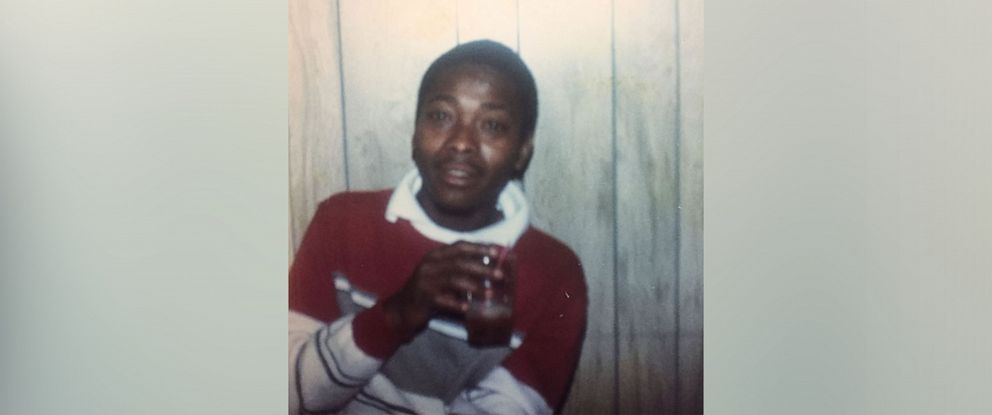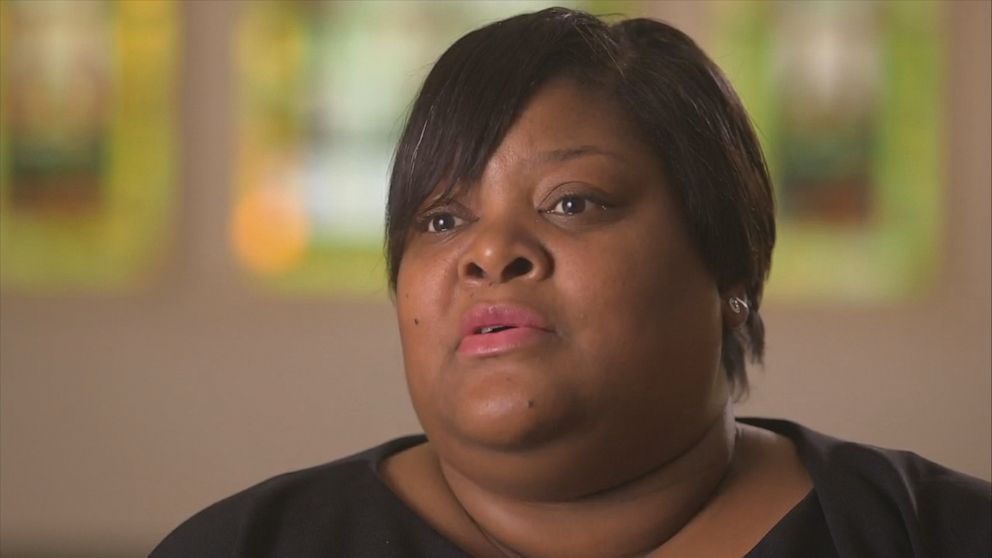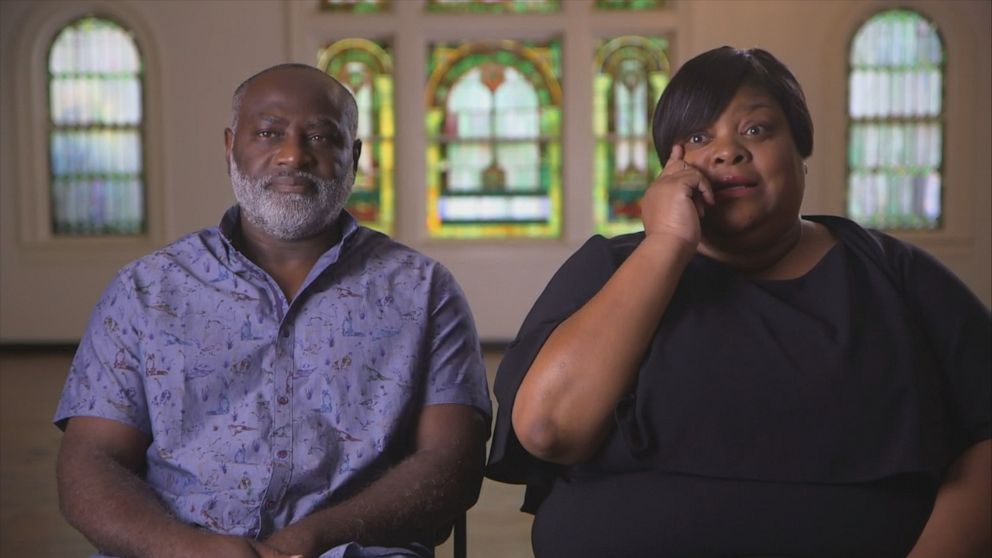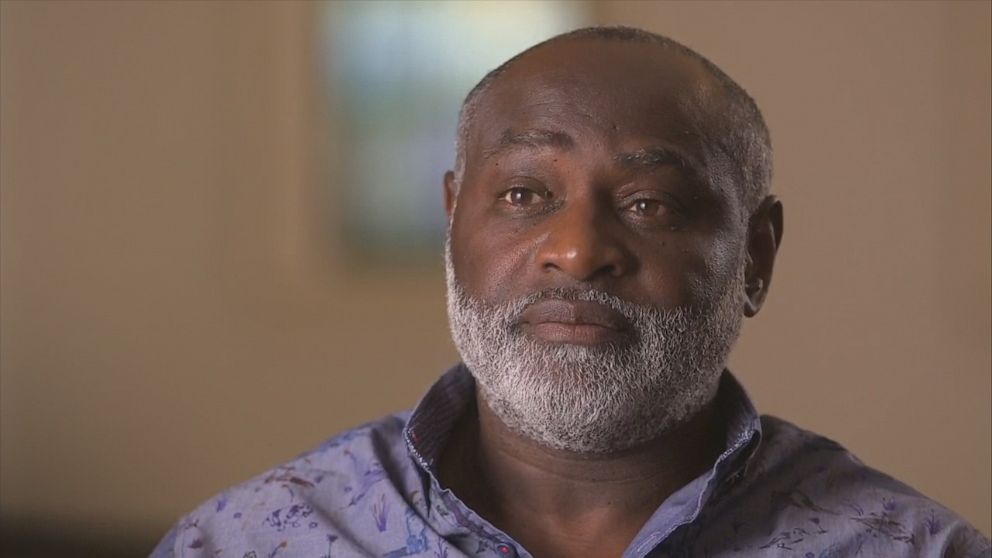Niece of Black man whose murder took 34 years to solve says 'don't give up' to Arbery, Floyd families
"In one family, we have experienced both of these cases directly," she said.
The family of a Black man who was brutally killed in 1983 say that the racism that allowed 34 years to pass before two men were convicted for his killing still exists today, and that they relate to the families of Ahmaud Arbery and George Floyd, who were killed this year.
Heather and Tyrone Coggins are the niece and brother of Timothy Coggins, who was murdered on Oct. 9, 1983. His sister last saw him dancing at a club outside of Griffin, Georgia. He was found in Sunnyside, Georgia, with multiple stab wounds and tortured, with an "x" cut across his chest — his body having been chained to the back of a vehicle and dragged, according to authorities.
The Coggins family also experienced another tragic death in 2001, when Tim Coggins’ brother, Eugene Coggins, died while in police custody.
When Heather Coggins heard about Arbery and Floyd’s cases earlier this year, she said the family “immediately identified with both because we lived both cases.”
“We’ve lived the case with Ahmaud with Tim. We’ve lived the case with George Floyd with my Uncle Eugene,” she told ABC News’ Deborah Roberts. “We experienced this. In one family, we have experienced both of these cases directly.”

Arbery, a 25-year-old Black man, was shot dead Feb. 23 while jogging in Glynn County, Georgia. Gregory McMichael and his son, Travis McMichael, both white men, assumed Arbery was the person who had committed several break-ins in their neighborhood. In video footage taken by a third white man, William Bryan, the McMichaels can be seen ambushing Arbery, with Travis McMichael shooting and killing him. The video was leaked online months after the incident.
Floyd died on May 25 in Minneapolis after police officers pinned him to the ground -- one of whom had their knee pressed onto his neck for over seven minutes as he said repeatedly, “I can’t breathe.” His death, caught on video, triggered global protests against police brutality and racial inequality.
Heather Coggins said her family is “praying” for these families who lost their loved one.
“We hope that you get justice, and I know that there are gonna be a lot of dark days,” Heather Coggins said. “I would ask if you are a family of faith, to lean on your faith and lean on one another because you’re gonna need it to get through this.”

For over 30 years, Heather Coggins said her grandparents led the “extremely tight-knit” family in “pushing forward.”
“We all adopted that same notion,” she said, despite the death of her uncle “hanging over us.”
A re-examination of the Coggins case in 2016 would lead to it being finally solved. That year, special agent Jared Coleman with the Georgia Bureau of Investigation had been assigned to give the cold case a fresh look and alerted the then-newly elected Spalding County Sheriff Darrell Dix of possible new leads.
In 2017, Frank Gebhardt and William “Bill” Moore, Sr. were charged with malice murder, felony murder, aggravated assault, aggravated battery and concealing the death of another in the Coggins case.
Gebhardt was convicted of these charges in 2018 and sentenced to life in prison plus 30 years. That same year, Moore struck a plea deal, pleading guilty to voluntary manslaughter and concealing the death of another. He was sentenced to 20 years in prison plus 10 years’ probation.
Heather Coggins said that despite waiting decades for justice in her uncle’s death, her family was “thankful” that it happened, and said they received some closure because of it.

“We don’t have to guess anymore what happened to Tim. … Now, we know that there are two people who will probably spend the rest of their days in confinement for what they have done,” she said.
Tyrone Coggins said that in the years following his brothers’ deaths he lived in fear, wondering if something would happen to him next.
“You gotta think, you’re talking about 34 years went by and you don’t know who the killer is, right,” he said.

After the men were sentenced, Tyrone Coggins said he was “glad” justice had been served.
“It was a long time coming. I just wish my mom and my dad was here to see it … just to get some closure with Tim,” he said.
After Coggins' murder, the Spalding County Sheriff’s Office and GBI gathered evidence and conducted interviews about Tim Coggins’ death but the case went cold.
When Dix began looking into the case, he found a diary from the early '80s belonging to a former sheriff’s deputy that indicated the Ku Klux Klan might have infiltrated the police departments. An entry from May 20, 1982 said that one of the local KKK leaders boasted about having “a number of good Klan in the police and sheriff's departments."
Heather and Tyrone Coggins said that Griffin has become a lot better with regard to racism over the years, but they both said there’s still “a long way to go.”
“We have to first identify that it exists,” she said. “And then we have to collectively, as a nation, as a community, as a world, try to solve it. Try to get rid of the racist ideas and the people that are racist.”
“There is still a long way to go when it comes to race relations, when it comes to identifying with people that look like you in high positions,” she said, noting that her family would not have been able to bring Tim Coggins’ case to justice on their own. “It had to take someone with a little bit more power and a little bit more pull in order to get someone to listen, and that shouldn’t be when there was an injustice done.”

She also said “we wouldn’t be having this conversation” about Tim and Eugene Coggins if there had been video recordings of their deaths -- both of which existed for Arbery and Floyd’s, and which have contributed to charges being brought against those involved.
Nearly four months after Arbery’s death, the three men involved in his death were charged with nine counts each, including malice murder, felony murder, aggravated assault, false imprisonment and criminal contempt to commit a felony. All three have pleaded not guilty.
All four officers involved in Floyd’s death were fired from the Minneapolis Police Department. Derek Chauvin, who pressed his knee into Floyd’s neck, was charged with second-degree murder and manslaughter, while the other three officers were charged with second-degree aiding and abetting murder and manslaughter. None of the former officers have yet entered a plea. But court documents show one of the former officers, J. Alexander Kueng, intends to plead not guilty and will argue self-defense.
To the families of Arbery and Floyd, the Cogginses offered a message of strength and perseverance.
“You just can’t ever give up,” Tyrone Coggins said. “You got to always stay for … some justice. Even though it can be some dark days in front of you, you just gotta keep pushing through it.”
Agreeing with her uncle, Heather Coggins said, “Don’t give up.”
ABC News Taigi Smith and Katie Muldowney contributed to this report.




